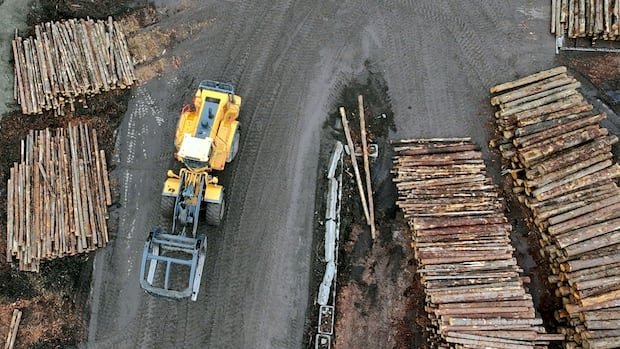U.S. President Donald Trump announced on Monday the imposition of 10% tariffs on imported timber and lumber, along with 25% duties on kitchen cabinets, bathroom vanities, and upholstered furniture. This move is part of Trump’s ongoing tariff strategy targeting global trade partners.
The decision to implement tariffs in these sectors was disclosed last week and is set to take effect on October 14 at 12:01 a.m. ET. Trump justified these new duties under Section 232 of the Trade Act of 1974, citing concerns about the impact of timber, lumber, and furniture imports on U.S. national security.
The proclamation also outlined a plan to increase duties further on January 1, 2026, to 30% for upholstered wooden products and 50% for kitchen cabinets and vanities from countries that do not reach agreements with the United States.
Trump’s administration emphasized that wood product imports are negatively affecting the U.S. economy, leading to potential closures of wood mills, disruptions in supply chains, and reduced utilization of the domestic wood industry. The order highlighted the vital role of wood products in national defense and critical infrastructure.
Canadian producers, particularly softwood lumber suppliers, are expected to face additional challenges due to the increased tariffs. Trump’s tariff approach has become a defining feature of his second term, impacting businesses dealing with supply chain disruptions, rising costs, and consumer uncertainty.
The Canadian government aims to negotiate tariff reductions through the Canada-U.S.-Mexico Agreement (CUSMA) but has allocated up to $1.2 billion in aid to support Canadian softwood lumber producers affected by previous duties.
The higher tariffs pose significant difficulties for industry players like James McKenna, a kitchen cabinet maker, who expressed concerns about the impact on their business operations. Brian Menzies, representing the Independent Wood Processors Association of B.C., highlighted the devastating effects of the tariffs on lumber producers and questioned the national security justification provided by the U.S.
While countries like Britain and Japan will receive some relief from the increased wood product duties based on existing trade agreements, concerns remain about the implications of these tariffs on global trade relationships. The U.S. Chamber of Commerce has opposed restrictions on timber and lumber imports, arguing that such measures could harm U.S. businesses and communities without addressing national security risks.

